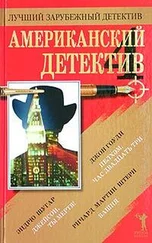The two firemen, two waiters, the fire commissioner, and the secretary general were behind the table barricades. One of the waiters testified later that the room was quiet; that you could feel tension building, particularly after the women were gone, but that everything seemed under control. “Until,” he added, “the stuff hit the fan.” There was surprise in his voice that it had been so.
Cary Wycoff was talking with a dozen men, only one of whom, another waiter, has been identified. His name was Bill Samuelson, and he had been at various times a longshoreman, a semi-pro football player, and a professional boxer of small accomplishment. No one else has ever chosen to admit being part of that group.
It was hot and getting hotter; on that point too there is agreement. The waiter from the barricaded area told it like this:
“It was funny. The wind coming in from the broken-out windows was cold and my hands were almost numb. But my feet were hot and the rest of me felt like, you know, like I was standing in a hot room in the gym, you know what I mean? Heat all around us, but still the cold wind, and that was what was so—funny, if you see what I mean.”
Ben Caldwell and the Soviet ambassador were talking together about the architecture of Moscow and the nostalgia that always struck the ambassador whenever he saw in this alien land of America a Zwiebelturm, the onion-shaped tower of Eastern European design.
Senator Peters was at the west bank of windows, quietly watching gulls over the river and the harbor. For him there was never-ending pleasure and release from tension in watching birds, and sometimes even heart-lifting surprises as well, as when his eye and he had quickly counted thirty-five great birds in flight, heading south, their black-tipped white wings slowly beating and their long legs trailing to identify them beyond a doubt as the single remaining flock of whooping cranes, probably off their normal migrating path in order to avoid a storm, but still heading with that mystical knowledge and compulsion about which so little is known straight for their Texas nesting grounds. Now, watching the herring gulls wheeling and probably shrieking as well, free as the air in which they flew, he wondered as he had wondered infinite times before why man in his evolution had chosen to remain earthbound.
The governor was still alone in the office with the dead telephone and his thoughts. He could hear faintly the music on his transistor radio, but other than that the big room outside was quiet. The governor’s thoughts were not.
Why had he not even tried to pull rank and place himself among the first of the men to ride the breeches buoy to safety? On the face of it, there was no answer that made any kind of logical sense. By now, or within a very few minutes, he could have been over on that Trade Center roof instead of sitting here at this stupid desk waiting—waiting for what? The answer to that was plain. He was waiting for the end to this tragic farce, but as a participant, not a spectator. How ridiculous could the situation be?
What thoughts a man allows himself in private! Ignoble, craven thoughts, sometimes lewd thoughts, dishonest thoughts, warped, even mad thoughts: all of the mental brew the devil’s cauldron can contain.
But they are only thoughts, and neither obsessive nor translated into action; and there is the difference between what men call sanity on the one hand and madness on the other.
So regardless of what he had done or not done through selfish use of power, he could wish that it had been otherwise. He told himself that he retained that privilege—and found that he was amused by his own hair-splitting. Amused, and not a little disgusted. He—
“So solemn, Bent.” Beth’s voice from the doorway. She stood quietly, a half-smile on her lips, awaiting his judgment.
The governor stared at her in wonder, gaping he thought. “Something happened to the breeches buoy?” Smiling still, she shook her head.
The governor raised his hands, and then dropped them. It was near disbelief that he felt, colored by joy and sorrow. “You didn’t go,” he said. He paused. “I couldn’t watch.”
“I saw.” She walked slowly forward.
“I tried to phone to see if you were—safe.” The governor paused. “But the line is dead.*’ He roused himself from near apathy. “I wanted you safe.” His voice was stronger, some of its old assurance regained.
“I know.” Beth had reached the desk now. She perched on it as before, long legs swinging gently. She held out her hand, and the governor took it, held it tight.
“You should have gone, damn it.”
“No, Bent.” There was calmness and serenity in her voice, her manner. “I told you I was not going to—make believe any more.”
“I wanted you to live.” He paused. “I still do.” True or false? Damn the analysis anyway.
“I know. I made the decision.”
“It was the wrong one.” The governor pushed back his chair. “We’ll—”
“No, Bent. I gave up my place. Even if I wanted to, there is no taking it back. When you step out, you go to the end of the line.”
“Damn it—”
“Bent, listen to me.” Her fingers squeezed his. “All my life I have been—decorative perhaps, maybe sometimes diverting, amusing, congenial, all of the things we are taught to be. She paused. “And useless.” She saw objection forming on his lips and she forestalled it quickly. “Yes. Useless.” She hurried on. “But these past few hours for the first time in my life I have felt that I was doing something useful, not very much perhaps, but far, far more than I have ever done before.”
“All right,” the governor said, “so you’ve learned a few things while we’ve been trapped here. Then take that knowledge and go—”
“There is another reason, Bent. Shall I say it? Because it is not the kind of thing one says and is believed. But it is true.” She paused, her hand now quietly resting m his. Her eyes were calm on his face. “It is that I would rather be here with you than be outside—alone again.”
The office was still. Distantly, faintly, the music sounds reached them, but that was all. From the overhead air-conditioning duct a puff of black smoke appeared, spread, and settled slowly. Neither noticed it.
“What do I say to that?” the governor said. “I’ve been sitting here alone, feeling sorry for myself He stopped. “Damn it, it isn’t right for you to be here! You—”
“Where I want to be?” Beth shook her head slowly. She was smiling again, with her lips, with her eyes, with all of her. “Dear Bent—” she began.
It was then that the first sudden sounds of strife broke out in the large room, voices raised in angry shouts, the din of furniture overturning.
The governor shoved his chair back and stood up. He hesitated only a moment. “Stay here,” he said and hurried through the doorway.
It was a scene from bedlam played in a haze of black smoke. One of the barricade tables was already overturned and men like animals were forcing it inside, opening a passage, tearing at one another in their frenzy.
As the governor looked, the fire commissioner grabbed the nearest man by his jacket front, drew him close with a savage motion and drove his fist against the man’s mouth. He released him and reached for another.
A waiter in a white coat, a large muscular man—it was
Bill Samuelson—crowded through the gap, slammed two punches into the commissioner’s belly and pushed him aside to fall.
Cary Wycoff stood near the overturned table, free of the melee, his voice raised, screeching, and as the governor trotted across the room Senator Peters, a candlestick in his right hand, poked Cary in the middle with it, doubling him over, and without pausing moved on to slam the candlestick against the big waiter’s head. The man dropped like a poleaxed steer.
Читать дальше










